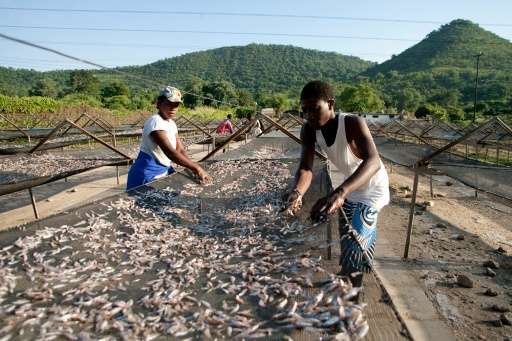ECC Champion
Over the years, overfishing has characterized Zimbabwe’s biggest water body Lake Kariba which is jointly shared with the country’s northern neighbour of Zambia.
This has prompted Zimbabwean and Zambian authorities to act to try reduce over-fishing and improve fisheries management.
This is part of efforts to promote conservation and implementation of sustainable fishing methods.
A technical committee on development and management of the fisheries and aquaculture of Lake Kariba recommended that Zimbabwe and Zambia should reduce the number of fishing rigs operating in Lake Kariba to ensure the survival of the industry.
Environment, Climate, Tourism and Hospitality Industry Minister Mangaliso Ndhlovu and the Zambian Minister of Green Economy and Environment, Collins Nzovu, held the discussions on the sidelines of the just-ended fifth session of the United Nations Environment Assembly in Nairobi, Kenya.
Zimbabwe and Zambia have a standing agreement which govern the exploitation of fish in Laker Kariba but both countries have violated the 2014 agreement.
The countries had agreed on the number of rigs each country could deploy on Lake Kariba with the 500 sustainable maximum divided to have Zambia hosting 225 and Zimbabwe 275.
The slight extra number allocated to Zimbabwe is because most of the large eastern basin on Lake Kariba is on the Zimbabwean side.
Ndhlovu said Zimbabwe has gone beyond the 275 agreed fishing rigs threshold to 429 while Zambia has 1 500 rigs on Lake Kariba instead of 225.
“However, currently Zimbabwe has 429 rigs, while Zambia has 1 500. This among other fish methods is creating overfishing, fish mortality, small sized bred fish,” said Ndhlovu.
The over population of fishing rigs on Lake Kariba has put too much strain on fish population which the mighty lake, during its peak days years back, gave each fishing rig about 15 trays but now it is said each rig will be lucky to get two trays.
In 2020, the Zimbabwe Parks and Wildlife Management Authority (Zimparks) stopped the issuing new fishing permits to curb the depletion of the fish.
Millions of people in the Zambezi basin region eat kapenta in their daily diet and thousands of fishermen earn their living by catching it.
But over-fishing – together with an increase in the numbers of the introduced freshwater crayfish, which eat kapenta eggs and hatchlings – is threatening livelihoods, jobs and food security.
In addition to the huge numbers of unsustainable fishing vessels, fish poachers who reportedly flood Lake Kariba at night have also compounded the problems.
Small-scale fisheries play a significant role in enhancing livelihoods, creating employment and contributing to food security for both Zimbabwe and Zambia.
The fishing communities in both countries are highly dependent on natural resources, which are climate sensitive.
Marine experts say food insecurity, wildlife attacks, lack of access to information systems, lack of fishing equipment, the existence of the predator crayfish, poor lake co-management and shrinking fishing boundaries are now threatening fish stocks on Lake Kariba.
They urge governments to develop small-scale fisheries policies that could positively enhance livelihoods and food security.
More than a third of the fish stocks around the world are being overfished and the problem is particularly acute in developing countries, the United Nations Food and Agriculture Organisation (FAO) said in a report released in 2020.
Additional reporting by The Herald.
This report was made possible through support from WAN-IFRA Media Freedom’s Strengthening African Media Programme: Climate Change and Environmental Reporting. Views expressed here do not belong to WAN-IFRA








